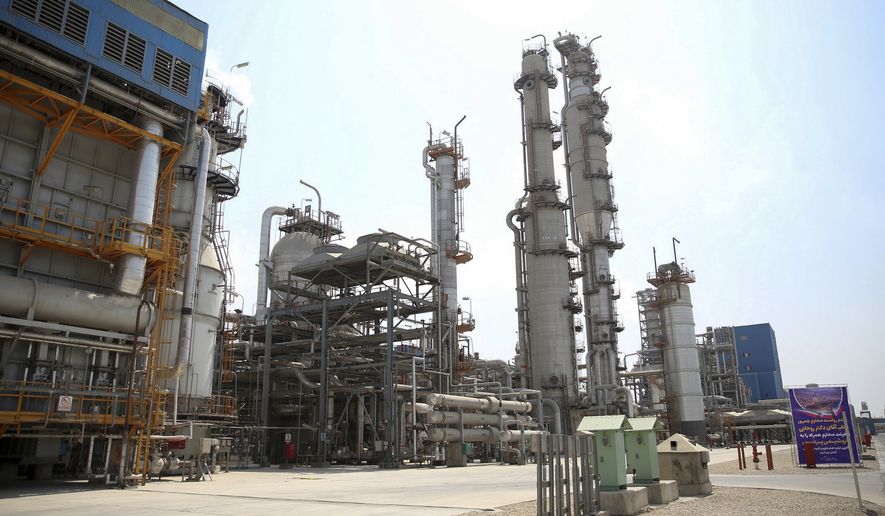Israel’s Defense Minister Avigdor Liberman said Sunday he believes the harsh sanctions that Washington will impose on Tehran early next month will not stop the Islamic republic from building a nuclear bomb, but they will significantly hamper Iran’s ability to export terrorism.
“Iran will not be able to fund terror,” which will negatively impact “Hezbollah, Hamas, proxies in Yemen and proxies in Iraq,” he said at the Jerusalem Institute for Strategic Studies.
Since May, when President Trump withdrew the U.S. from the 2015 multilateral deal that eased global sanctions in exchange for curbs on Iran’s suspect nuclear programs — Washington has worked to thwart the Islamic republic’s aggressive behavior across the Middle East by reimposing sanctions.
A further round of even harsher penalties is set to start on Nov. 4 with the goal of crushing Iran’s ability to export oil. Under the sanctions, countries who buy Iranian oil will have their access to U.S. markets and financial institutions blocked.
The Jerusalem Post reported that Mr. Liberman observed that “Iran made a political decision to eventually obtain a nuclear weapon and that sanctions alone could not force it to change its mind,” although he hoped they would pressure the regime internally.
Separately on Monday, Iran’s top energy official blamed the recent spike in world oil prices on the upcoming sanctions.
“As I have repeatedly said there is no replacement for Iranian oil in the market,” Iranian Oil Minister Bijan Zanganeh told the ministry’s website SHANA on Monday.
“Saudi Arabia and Russia’s output is near their highest level ever, and they have no spare capacity to pump more to replace Iran’s oil,” he added.
Iran is OPEC’s third-largest producer. Officials in Tehran have repeatedly warned that the Trump administration’s bid to crush the Islamic republic’s export capabilities will only wreak havoc on the global oil market because China and India, Iran’s largest customers, will not be able to meet their demands if they cannot buy Iranian crude.
“The market’s knowledge of this inability has raised the prices as the average price (of crude),” Mr. Zanganeh said, adding that he sees rising oil prices as starting to slow down the global economy.
• Dan Boylan can be reached at dboylan@washingtontimes.com.




Please read our comment policy before commenting.